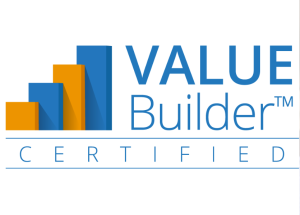Time.
Time is hardly ever the business owner’s friend.
Few business owners are trying to figure out what to do with “leisure” time.
Figuring out what time is right to undertake a new project is difficult with macro-economic changes affecting even smaller privately-held businesses.
So, if you are like most business owners, you haven’t taken time to determine if the time is right to sell your business.
Take time to read and ponder these thoughts from an industry professional.
The U.S. stock market appears to be firing on all cylinders but remains subject to tremendous volatility and uncertainty due to geopolitics, interest rates and tariffs. These factors have caused business owners and entrepreneurs anxiety as they seek to build sustainable enterprises while maintaining momentum in a volatile and uncertain operating environment.
Despite these obstacles, uncertainty and challenges, the overall environment for M&A is quite healthy (excluding retail) and poised for continued strong activity coupled with better business backlogs for 2019. Now might be a good time for owners to think about pursuing a proactive liquidity event or transitioning strategy rather than deferring the decision until later when options might be limited or market conditions less favorable.
Here are top reasons owners should consider a sale or recapitalization of their business now rather than later:
Deal markets are favorable today. Valuation levels in both the public and private markets are favorable for sellers. It is important for business owners to consider the value of achieving full liquidity today via an exit versus trying to hold out. By waiting, a seller is also taking on unnecessary risk of unforeseen negative events (death, environmental issues, loss of a key customer, etc.).
Buyers have money to spend. Large strategic buyers have deep pockets and will likely need to grow through acquisition while organic growth prospects remain limited. The private equity marketplace is also full of new and well-established funds seeking both platforms and add-on acquisitions to build strong investments. Meanwhile, family offices have emerged as alternative sources of capital for those seeking a patient, flexible and long-term partner.
It’s much easier to tell a story to a buyer with the wind at your back and realistic growth forecasts during favorable business conditions than to convince investors or buyers of future improvement during a negative operating environment.
Time may not be on your side. Aging owners are always fearful of the next downturn. Many have been waiting for the optimal time to exit and could miss an ideal window if they do not act soon. It’s much easier to tell a story to a buyer with the wind at your back and realistic growth forecasts during favorable business conditions than to convince investors or buyers of future improvement during a negative operating environment. A solid pipeline or backlog with strong macro indicators goes a long way toward generating a higher sale price and creating a competitive auction for “trophy assets.”
Some businesses are more prepared—and more valuable—than others. Companies with solid financial and operational profiles, accurate financial reporting, established management teams and attractive long-term prospects are highly desirable to buyers and financial partners. For example, in the metals sector, fabricators and niche component manufacturers are better positioned to realize optimal proceeds and will garner more interest than a commodity scrap trader.
Banks are de-risking. Banks are seeking relief from troubled or overleveraged credits and are beginning to show a reduced appetite for commodity risk, and falling inventory and asset values. Lenders likely will not be as supportive during the next downturn due to today’s increasingly stringent regulatory environment. The “extend and pretend” behavior exhibited by banks in the past may not work during the next down cycle. To this point, many manufacturers have already transitioned away from cash flow loans to asset-based loan facilities and now have new lenders with a new set of priorities.
Political and regulatory uncertainty, but lower taxes today. A majority of businesses and their owners have benefited from lower taxes, low interest rates and reduced regulatory burdens, yet there is a real threat for continued political uncertainty in Washington, and as we approach midterm elections, I suspect that new challenges will remerge regardless of the election outcome. With the economy performing favorably and geopolitical uncertainty on the horizon, business owners should be asking themselves how long good times can last and if it might be best to maximize proceeds sooner rather than later.
M&A is an excellent tool for companies to enhance and expand their product offerings and ultimately create better value for their customers.
More investment is required. Many middle-market organizations lack the skills and long-term horizon to reap the investment rewards that technology initiatives can generate. Private equity is well suited to act as a partner for owners looking to make these types of investments in their business. There is an abundance of dry powder currently available to fund growth investments while also allowing owners to diversify their net worth and de-risk their ownership positions should these investments fail to realize the intended results.
A good offense is a great defense. Sellers need to prepare for an exit well before they begin a formal transaction process, and there are steps owners should take to get their house in order before any formal or informal interaction with a buyer. Anyone considering exploring the sale of their business should ask themselves how a prospective buyer will view the business, and what changes can be made to increase their desire toward a strategic combination.
Business owners deciding against the “transact now” scenario would be well advised to focus on actions to enhance long-term value or pave a clear pathway to unlock future liquidity and sell later. Ideas include:
Hire professional management and upgrade talent. It is important for owners to understand their limitations and strive to replace or upgrade mediocre or underperformers—even if that means firing themselves or a family member in the process. Numerous businesses form a board of outside directors to hold the management team accountable and act as a sounding board for new ideas. It’s imperative for a business to have a written and formal succession plan in place.
Optimize your capital structure through a debt recapitalization. Even if your business does not need more capital, it might be advantageous for owners to take some money off the table to diversify their wealth through a modest debt financing and lock in the interest rate before rates rise. This provides immediate liquidity and has the added benefit of a tax shield; plus, it can act as a driving force to ensure the continued performance of the business in order to pay down debt and increase equity value. Most debt facilities also come with a fixed maturity date which can serve as a natural target date to facilitate exit planning or pay employee bonus compensation.
Pursue M&A. M&A is an excellent tool for companies to enhance and expand their product offering and ultimately create better value for their customers. Acquisitions can also help to diversify risk by expanding a company’s geographic footprint, growing their customer base and broadening existing sales channels.
Get your house in order. Most private companies can benefit from upgrades to IT systems and the implementation of company-wide employee- and labor-tracking metrics. Improved financial reporting can also help a management team identify possible revenue and cost-synergy opportunities. Thorough internal due diligence can help owners identify risk factors before a potential buyer does. If you currently only have your financial statements reviewed annually, making the shift to annual audited statements is likely worth the added cost and time: It will add legitimacy to your internal reporting and help get buyers, lenders and partners more comfortable with the numbers you are presenting.
Get lean. Owners will reap efficiency benefits from investments in lean processes and future buyers will also favorably factor these profitability improvements into their valuation when the business is sold. Business owners should evaluate opportunities to strengthen and build technology tools by enhancing the company’s web presence or adopting internet of things devices and implementing them in their day-to-day operations. Boosting “goodwill” value with brands and other intangibles, such patents and intellectual property, is also a sound and worthy investment.
While the historical insatiable deal appetite displayed by financial and strategic buyers will likely slow, there is still time to jump into the fray and benefit from favorable valuations and market conditions. Business owners that wait will run the risk of trying to convince buyers to pay more in a macro environment defined by higher interest rates, tougher financing conditions and finicky capital markets coupled with inferior business prospects for the target company.
McGrew-Frank
Frank A. McGrew IV is a managing partner at McNally Capital.


